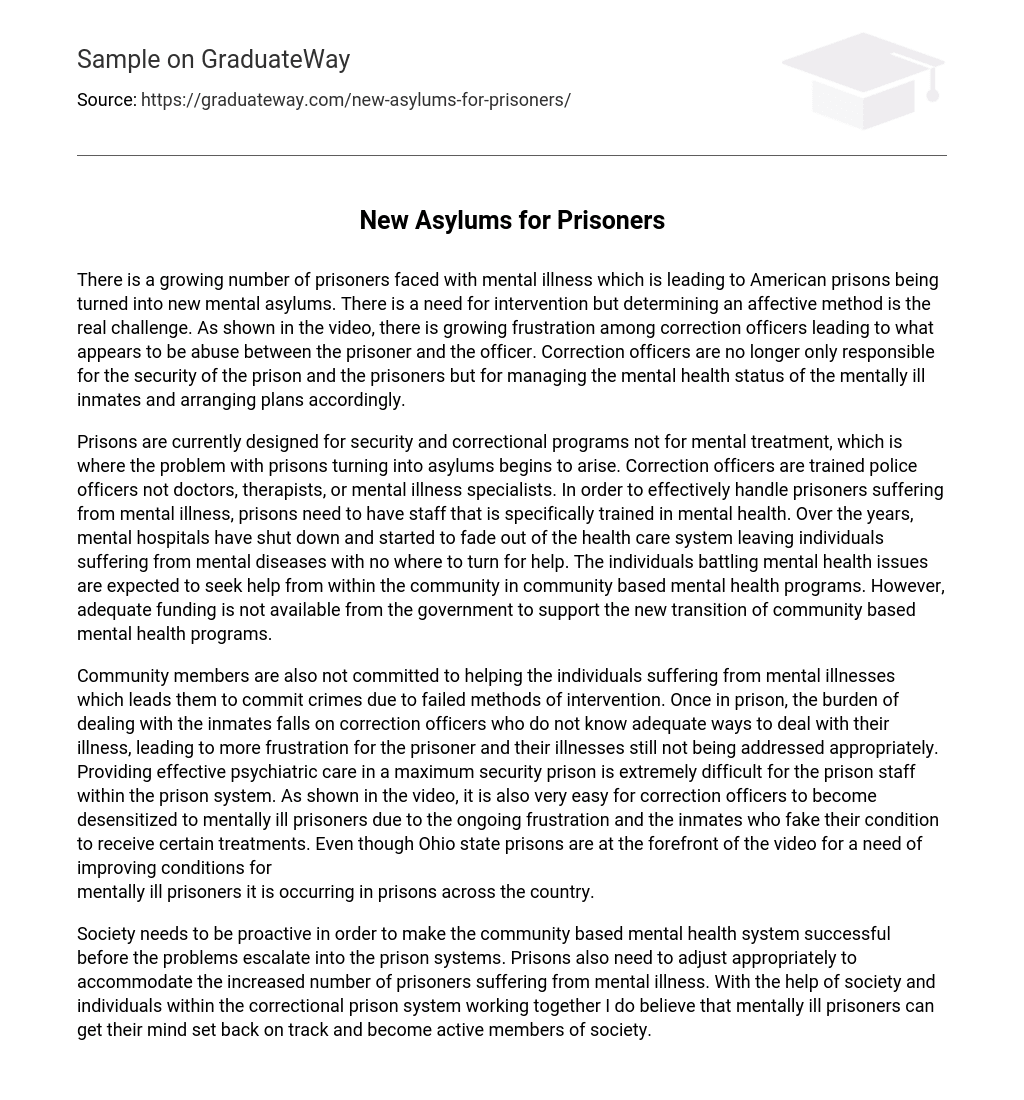The rising number of prisoners with mental illness is transforming American prisons into mental asylums. Finding an effective intervention method is the main challenge. The video highlights increasing frustration among correction officers, resulting in potential abuse between officers and prisoners. In addition to security, correction officers now also have the responsibility of managing the mental health of mentally ill inmates and organizing appropriate plans.
The issue of prisons becoming asylums arises due to their primary focus on security and correction, rather than providing mental treatment. The staff in prisons, consisting of correction officers trained as police officers, lack the expertise in mental illness possessed by doctors, therapists, or specialists. To effectively handle prisoners with mental illness, it is necessary for prisons to have staff members specifically trained in mental health.
Unfortunately, mental hospitals have gradually been closing down over the years. This has reduced their role within the healthcare system and left individuals with mental diseases without viable options for help. These individuals are expected to seek assistance from community-based mental health programs; however, the government does not allocate sufficient funding to support this transition.
The lack of community support for individuals with mental illnesses contributes to higher crime rates and ineffective intervention methods, ultimately leading to the incarceration of these individuals. Consequently, correction officers who lack proper training bear the responsibility of managing their illnesses. This failure to address their mental health issues further exacerbates prisoners’ frustration. Staff members face significant challenges in providing effective psychiatric care within maximum security prisons. The video clip illustrates how continuous frustration and the presence of inmates pretending to have mental illnesses for personal gain can desensitize correction officers towards mentally ill prisoners. It is important to note that the need for improved conditions for mentally ill prisoners is a nationwide problem that extends beyond Ohio state prisons.
Society should take proactive steps to support the community-based mental health system and prevent issues from escalating into the prison system. Additionally, prisons need to make necessary accommodations for the increasing number of inmates with mental illness. By fostering collaboration between society and individuals within correctional facilities, mentally ill prisoners can regain stability and successfully reintegrate into society.





